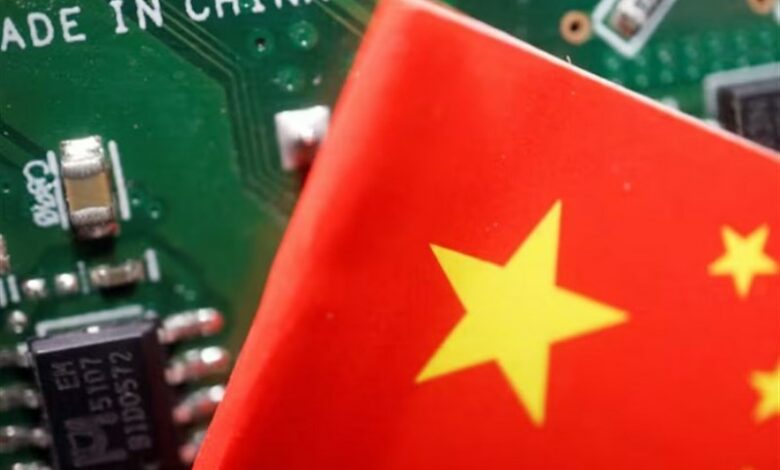China’s huge investment in the chip industry

| The Chinese government has launched its third state-owned investment fund for the semiconductor industry, with a record amount of more than $47 billion. |
According to the international group Tasnim News Agency, according to a document from China’s state-owned enterprise registry, Beijing announced its third planned state investment fund to boost the semiconductor industry at a record 344 billion yuan, equivalent to 47 / launched $5 billion.
Accordingly, a The third phase of the China Integrated Industrial Investment Fund was officially launched three days ago on May 24 and registered under Beijing’s Municipal Management Law for Market Regulation, the State Credit Information Agency reported. China’s integrated industrial enterprise is called “Big Fund”.
Accordingly, hundreds of billions of yuan have been invested in this sector in order to fulfill the goal of President Xi Jinping to achieve China’s self-sufficiency in the semiconductor sector of the society.
This action was taken after the US government feared that Beijing would use advanced chips to enhance its military capabilities. The country imposed new tariffs and export controls on Chinese products.
With 17% of shares, they are the largest shareholder and the China Development Bank with 10.5% of shares are the second largest shareholders of this investment fund.
In addition, seventeen other institutions are also in the list of shareholders of this fund, including the 5 main banks of China: Industrial and Commercial Bank, Construction Bank, Agricultural Bank, Bank of China and China Communications, each of which owns about 6% of the fund’s total capital.
The first stage of this fund was launched in 2014 with a final figure of 139 billion yuan and the second stage in 2019 with a figure of 204 billion yuan.
Some time ago America announced a significant increase in tariffs on some Chinese products, especially batteries for electric cars and computer chips and medical products.
According to the new law, China’s electric vehicle tariff will be quadrupled and the import of solar cells and semiconductors will be subject to a 50% tariff. to be In addition, the import tariff of cranes will increase from zero to 25%, the tariff of some medical tools, including syringes and needles, will increase from zero to 50%, and the tariff of some personal protective equipment used in medical equipment will increase from almost zero to 25%. The shortage of personal protective equipment, which is mass-produced in China, caused a lot of damage to the United States during the corona epidemic.
Accordingly, 18 billion dollars of Chinese imported products including Steel and aluminum, semiconductors, electric vehicles, vital minerals and solar cells are affected by this new law.
Additionally, under this law, additional tariffs in 2025 and 2026 on semiconductors including lithium batteries, permanent magnets and graphite, as well as gloves Medical and surgical plastic is applied.
Wang Yi Chinese Foreign Minister in A clear comment stated that the significant increase in US tariffs on Chinese products shows that some people in Washington have lost their minds.
He emphasized that the suppression of China by the United States does not show that the United States is strong, but rather shows that the United States has lost its confidence and is disabled .
He said: at this critical point of economic recovery Globally, international communities should warn the United States not to create new trouble for the world.
Meanwhile, Donald Trump said: The imposed tariffs are not enough and should be imposed on all cars imported from China.
During his presidency, Trump imposed tariffs on two-thirds of China’s imported goods, and since then the economic war between the two countries has intensified.
This comes as Joe Biden seeks to differentiate his view of China from Donald Trump, who has proposed nationwide tariffs. Trump has also promised to impose tariffs of 60 percent or more on all Chinese goods.
At the same time, Washington has imposed sanctions on various Chinese companies, which Washington has accused of collaborating with China’s military industries, despite the denials of these companies. . US sanctions have also been imposed on Chinese individuals and entities that are accused of violating human rights in the Xinjiang region.
In recent months, relations between America and China have witnessed There are signs of improvement as both sides take steps to re-establish communication channels after growing tensions between them in recent decades.
Beijing’s reaction to the increase in US tariffs on Chinese products
end of message /
| © | Webangah News Hub has translated this news from the source of Tasnim News Agency |
[is_logged_in] Link [/is_logged_in]
|


